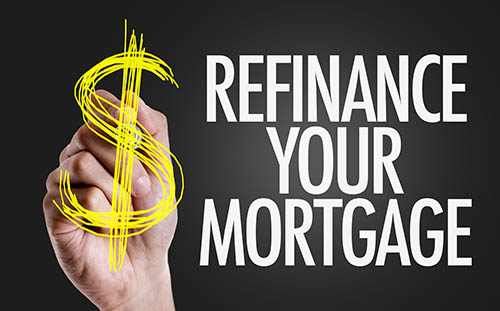Are You Ready to Refinance Your Mortgage? Learn How to Do a Quick Refinancing Self-Assessment
 Whether you’ve decided to renovate your home or you would like to consolidate your debt, refinancing your mortgage can be an option in times of money trouble; however, it’s important to know whether or not this is the right step for you. If you’ve been considering refinancing recently and are wondering how to come to a decision, here are some questions you should ask yourself before wading into the water.
Whether you’ve decided to renovate your home or you would like to consolidate your debt, refinancing your mortgage can be an option in times of money trouble; however, it’s important to know whether or not this is the right step for you. If you’ve been considering refinancing recently and are wondering how to come to a decision, here are some questions you should ask yourself before wading into the water.
Do You Have The Extra Time?
It may sound silly, but looking into the details of financing your mortgage can take up a lot of time, and if it’s going to be stressful or tax your abilities too much, you may want to hold off until things change. Because there are so many details associated with refinancing, and the security of your largest investment hangs in the balance, it’s important to have the time to research and understand all the small stuff so you don’t fall victim to a bad loan or confusing mortgage terms.
What’s My Interest Rate?
It’s entirely possible that refinancing may not be worth it if you can’t get the interest rate you’re expecting, so don’t be taken in by low rates you may have come across. Because many unreliable lenders will offer the lowest rate to get your business, it’s a good idea to do the research and go with someone you can trust. Your credit score and financial standing will have a lot to do with the rate you qualify for, but if the interest isn’t as low as you’ve calculated, it may not be a beneficial financial decision in the end.
Will This Help My Financial Situation?
No one decides to move forward with a mortgage refinancing without thinking that it’s a good financial decision, and that’s why it’s so important to carefully weigh all of the variables before deciding refinancing is for you. From a job loss to a home relocation, there are many things that come up in life that we are not always financially prepared for, so make sure to consider as many possible pros and cons as you can before moving forward with this option.
Many people think that refinancing their mortgage will improve their financial situation and eliminate their debt, but it’s important to consider all of the outcomes of this choice before coming to any final decision. If you’re currently considering refinancing, you contact your local mortgage professional for more information.

 With the rising cost of real estate, many people feel that now is a good time to buy a home to ensure a good financial future. However, if you haven’t saved up enough money to make a down payment, it’s possible you may be considering whether or not you should borrow the funds. If you’re considering a loan from friends or family, here are some points you may want to think about before asking for a loan.
With the rising cost of real estate, many people feel that now is a good time to buy a home to ensure a good financial future. However, if you haven’t saved up enough money to make a down payment, it’s possible you may be considering whether or not you should borrow the funds. If you’re considering a loan from friends or family, here are some points you may want to think about before asking for a loan. There was a time when it was possible to acquire a mortgage shortly after filing for Chapter 7 bankruptcy, but with the shifts in the financial sector, the timeline on such a mortgage approval has changed in recent years. If you’re currently undergoing a Chapter 7 bankruptcy and are wondering how this will impact home ownership, here are the basics on this type of bankruptcy and what it may mean for you.
There was a time when it was possible to acquire a mortgage shortly after filing for Chapter 7 bankruptcy, but with the shifts in the financial sector, the timeline on such a mortgage approval has changed in recent years. If you’re currently undergoing a Chapter 7 bankruptcy and are wondering how this will impact home ownership, here are the basics on this type of bankruptcy and what it may mean for you.